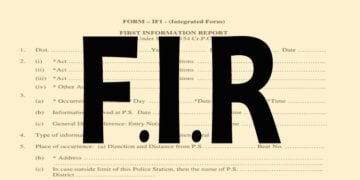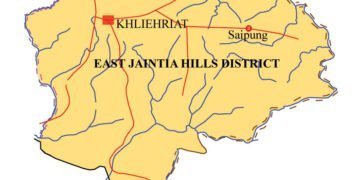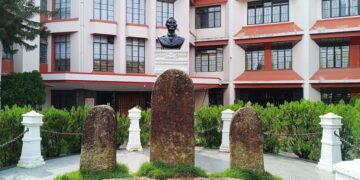ICARE, a civil society organisation, held a consultative workshop on community engagement in Covid-19 prevention where a free and candid discussion between government officials, heads of traditional institutions and concerned individuals was facilitated.
The workshop was organised in collaboration with the Indian Council for Social Science Research (ICSSR) North Eastern Regional Centre.
Prof Nanda Kishore Kannuri of the Public Health Foundation of India made a presentation on the importance of consultation and participatory planning when dealing with a pandemic like Covid. He said information sharing by government agencies is crucial and health communication should be culturally sensitive and contextualized. Trust building is essential in trying to bring about behavioural change such as wearing masks, maintaining social distance and hand washing, etc, as part of Covid prevention.
Prof Kannuri pointed to the Kerala model of addressing pandemics such as the Nipa virus through the engagement of the panchayats and various other community stakeholders and the government as a positive social mobilisation strategy. He also spoke of the constant need to check and challenge misinformation.
Principal Secretary of the Health Department, Sampath Kumar, recalled how difficult the first phases of the pandemic were when stigmatisation prevented people who died of Covid from even getting a burial space. But with time and the coming together of the Dorbar Shnongs and various community leaders and when the fear psychosis was addressed this was the beginning of the end of stigmatization of people who tested Covid positive, Kumar said.
Kumar also spoke of adaptive leadership where all stakeholders in society and not just the government would be part of the solution. “When Covid first struck there was no data and no way of knowing how to address it except through normal medical intervention. However, the government quickly adapted by setting up a state level medical expert team comprising doctors from government and private institutions to try and find solutions,” he said. “We had to do a lot of data mining and mapping to break the transmission and the Indian Institute of Public Health (IIPH) Shillong was of great help in putting together that data. We had to build the health system to prepare for the Covid crisis and started with four ventilators and also trained medical personnel in Covid interventions.”
Kumar added that the biggest challenge was to dispel the fear psychosis, rumours and misinformation around Covid.
Speaking of vaccine hesitancy, Kumar said the design for public health communication could have been better managed. Kumar underlined that in Meghalaya malaria used to be the number one killer but after the ASHAs were trained to test malaria patients and to give them the required medication the number of malaria deaths came down significantly. Hence a similar training for tackling Covid is in the pipeline.
Mission Director of the National Health Mission, Ram Kumar, said that unless communities own the initiatives, no pandemic can be contained. He also stressed on the importance of data. “There was no oxygen crisis in Meghalaya because we were in a better position to predict the oxygen requirement thanks to the data. It is important to build a credible and objective data team,” he said, adding, “Use data to respond, not react.”
RL Blah, President of Synjuk Ki Nongsynshar Shnong ka Bri U Hynniewtrep (SNSBH), who has been in the forefront of mobilising community engagement, particularly during the first Covid wave, explained how this body had put their lives on the line to help address the crisis.
“During the first Covid wave there was complete lockdown so we could handpick the best professionals as members of the community Covid management teams and use their services. We set up quarantine centres for the returnees comprising students and workers from outside the state. Apart from providing them sleeping facilities we also provide them with WiFi, knowing how lonely they would feel. For all of this we used the Dorbars’ funds and contributions from well wishers,” Blah informed.
At the personal level Blah said he was so involved that he had to be tested 17 times and quarantined on four occasions. He also understood then that stigmatization was real when people started to avoid him.
Blah rued the fact that the state government was dragging its feet over giving due recognition and empowerment to the traditional institutions when they are most connected to the people at the grassroots. He also said that the government has not done enough to recognise the efforts of Shillong Municipal Board workers who toiled tirelessly cremating the dead at the height of the second wave.
The SNSBH now plans to go to Mawkynrew and Jongksha along with the Shillong All Faith Forum after Christmas to meet the 65 Dorbar Shnong there to dispel the myths against vaccination and explain to people that, now with the Omicron threat, vaccination is the only answer.




























